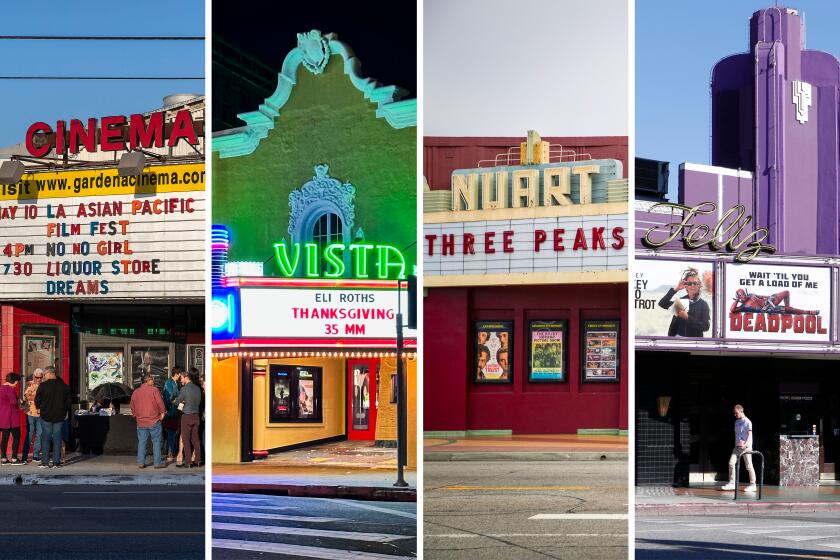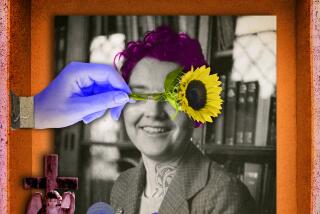How a first-time filmmaker turned a Virginia Woolf novel into a ‘survival’ strategy
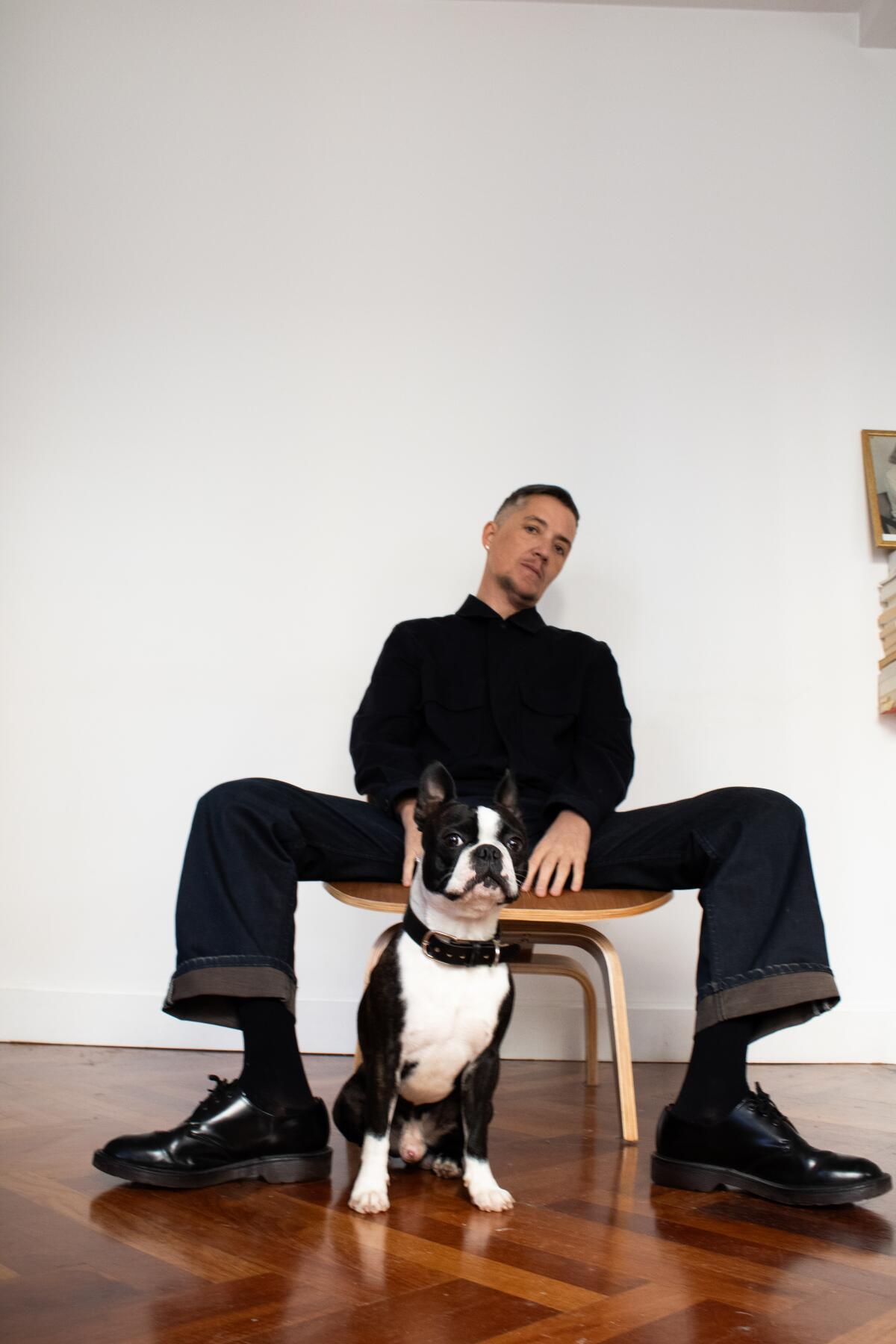
For Spanish-born philosopher turned director Paul B. Preciado, poetry is about “the freedom of transforming language,” he says during a recent video call. His debut film, “Orlando, My Political Biography,” out now in theaters, is also a kind of poetry. Utilizing an army of trans and nonbinary performers who he describes as “gender poets,” Preciado celebrates the fluidity of gender itself, wresting it away from a mainstream framework. (Already, “Orlando” is being hailed by critics and festival audiences as a trans landmark.)
Preciado’s journey to making “Orlando” began when a French-German production company approached him about making a film around his life and work. (The popular scholar and author, 53, teaches in Paris and has himself transitioned.) He initially tried to convince them to drop the idea.
“I knew at that point that that was not the way in which I wanted my life to be told,” he says, flinching at the idea of something conventional despite its good intentions: a story “from a binary perspective,” going from being assigned female to male along an expected narrative.
His efforts to dissuade the producers involved suggesting alternate subjects, including French feminist theorist Monique Wittig and transgender activist-author Leslie Feinberg. When they remained undeterred, Preciado suggested that any film about his life “should be a documentary adaptation of ‘Orlando,’ by Virginia Woolf.”
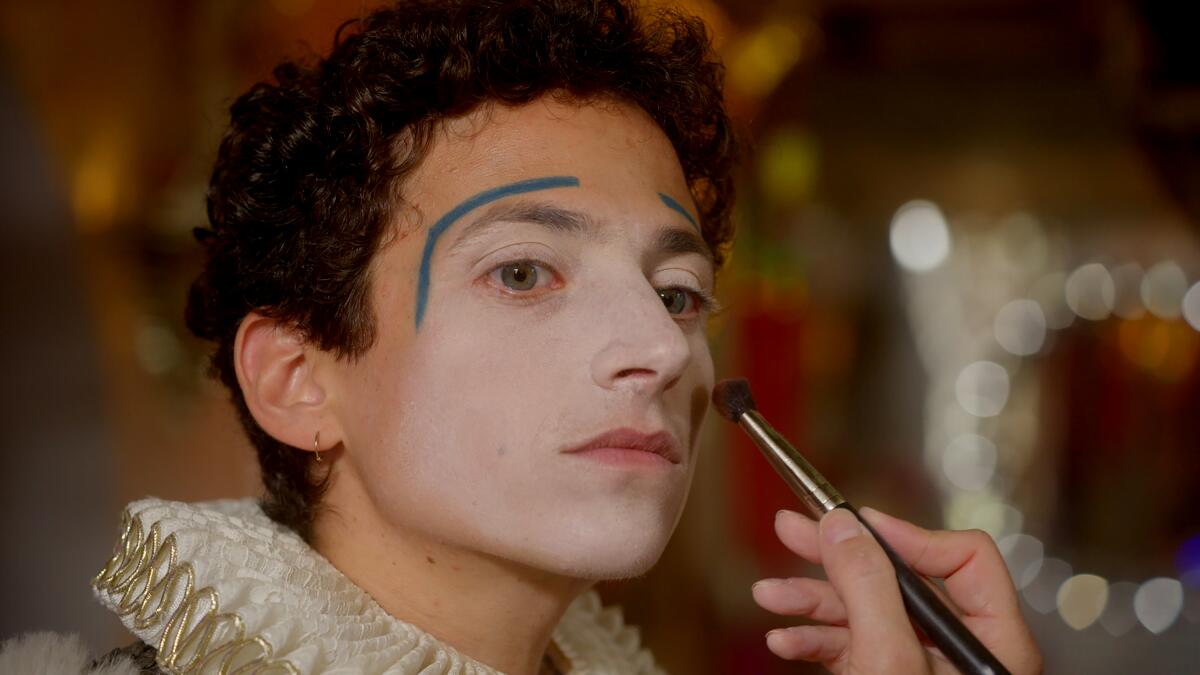
“It’s very funny because I said ‘documentary adaptation’ without knowing what I meant by that,” says Preciado, still amused by the turn of events. “For me, this was a way of saying: This is the end of the conversation.”
But it wasn’t. His ultimatum generated even more excitement and Preciado was urged to figure out what a documentary adaptation might, in fact, look like.
“Orlando, My Political Biography,” which premiered at the Berlin International Film Festival earlier this year, is the answer. It resists easy categorization. A cinematic essay in conversation with Woolf’s 1928 satiric fantasy “Orlando: A Biography,” the documentary enlists more than 20 onscreen testifiers to share the role of the novel’s eponymous hero, an aristocratic poet who wakes up a different sex one day, to convey the breadth of the character’s legacy.
Among the film’s cast are well-known French LGBTQ+ figures including the iconic Jenny Bel’Air, “Baise-moi” writer-director Virginie Despentes (whom Preciado dated for several years) and the art duo Pierre et Gilles. It also includes footage of singer and trans pioneer Christine Jorgensen and fiery advocate Sylvia Rivera, reflecting a rich history of queer resistance.
Scholar-philosopher-turned-director Paul B. Preciado constructs an essay film based on Virginia Woolf’s landmark queer novel, here turned into a clarion call.
Beginning with an impulse to write an imaginary letter to the “Mrs. Dalloway” author herself, Preciado is the first to admit that he is no Woolf expert. Growing up in conservative post-Francoist Spain in the 1970s, he first encountered “Orlando” at school as a teenager. Accepting the novel’s full title as fact, he picked up the book believing it to be an actual biography.
“I was living in a society where nothing around me would allow me to think a life as a nonbinary person or as a trans person was possible,” says Preciado. “Orlando” opened his eyes to the potential of an existence that wasn’t pathologized or vilified as monstrous. “Fiction became more important to me than reality at that point.”
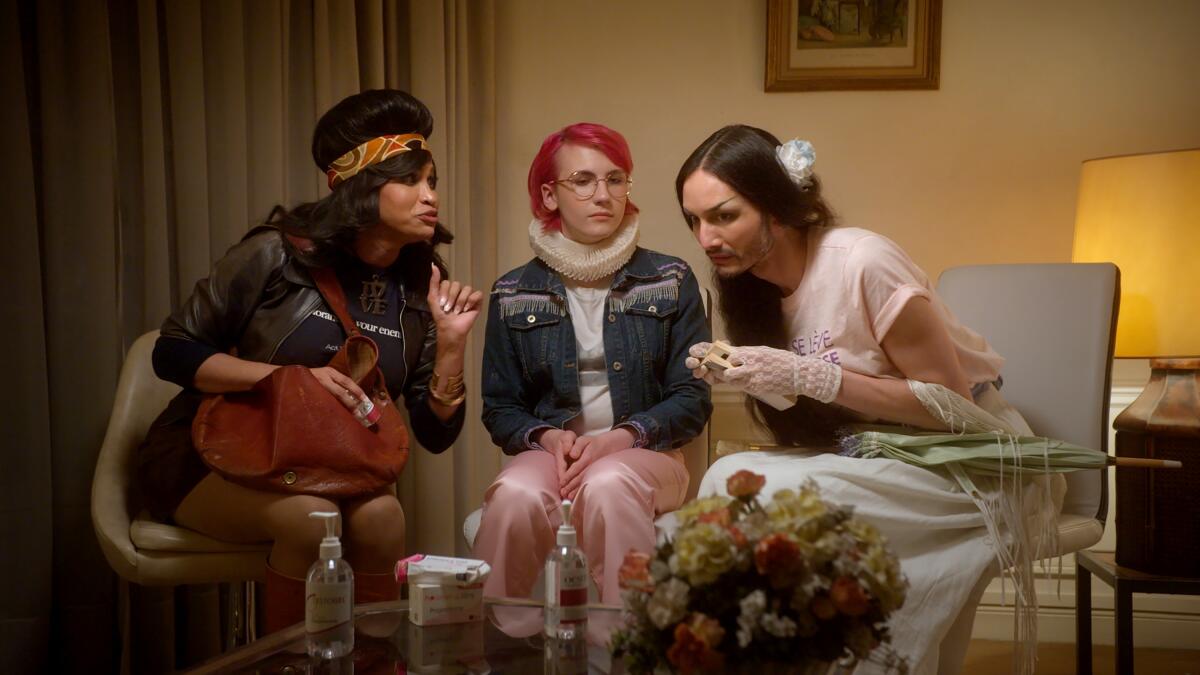
Preciado’s film, much like his written essays and books, is a study of fiction — both its radical possibilities, as well as the politicized way that certain fictions are made legitimate by society.
“For political minorities,” he says, “fiction is a methodology for survival. We can only transform political reality through fiction, [only] through a leap into fiction that change is possible.”
But just as some fictions are liberating, others are violent and oppressive when imposed onto marginalized people. For the trans and nonbinary community, this includes the languages of medical science, psychiatric discourse and legal jurisprudence around their rights and bodies. In Preciado’s view, there are certain types of political fictions that have been privileged, acknowledged and legitimized by society.
“For instance, your passport is a piece of fiction,” he says, “but it’s a fiction that has been recognized by the state. Whereas for a migrant person that might have no papers, there is no recognition possible.”
It’s a debate that presupposes a fixity, using language long-weaponized by conservative and far-right voices, that many are now challenging and rejecting. “It seems that we have to answer their questions constantly,” says Preciado. “And no matter how brave you are, it’s still answering questions within this very normative frame.”
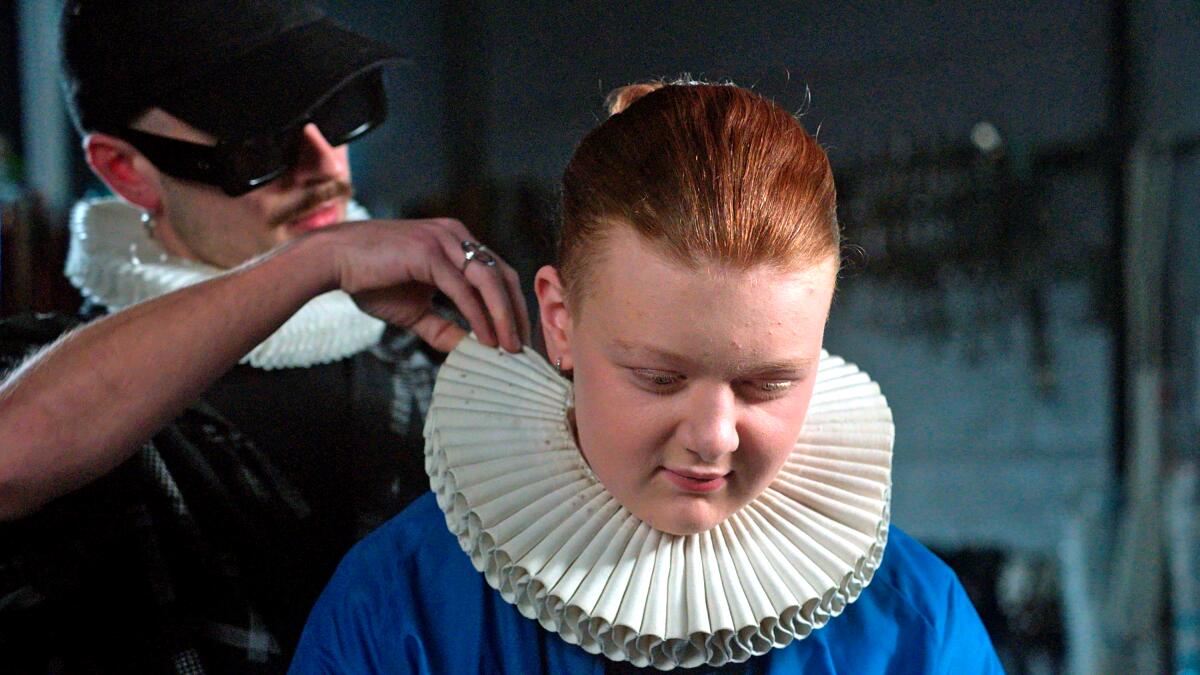
It was by working through the lens of Woolf’s “Orlando” that Preciado was able to break away from this normative language and invent something new. His film, he says, builds a “poetic wall” against a constant onslaught of snubs big and small.
“Orlando, My Political Biography” also captures joy and optimism. The film ends by imagining a near-future moment when a judge (portrayed by Despentes) grants all of the Orlandos full recognition and status, complete with official documents.
For Preciado, filming that final scene was “unforgettable,” he says. As he was developing the material with his Orlandos, he realized that having papers was a key issue for many of them. It affected everything from whether they could have bank accounts to whether they could even attend school.
“Socially and legally, you’re dead — you don’t exist,” says Preciado of those without official documents that recognize identity. As a first-time filmmaker, he was not always certain that he was getting the shots he needed. But he says he knew he was capturing something special when he was filming that scene.
We’ve mapped out 27 of the best movie theaters in L.A., from the TCL Chinese and the New Beverly to the Alamo Drafthouse and which AMC reigns in Burbank.
Seeing the audiences’ reception to his film has been healing for Preciado. Making a movie has been a way for him to connect with people who might not traditionally pick up dense philosophy books, including his parents. He brought them to a screening of “Orlando” at the San Sebastian Film Festival.
“My father ended up crying at the end of the film,” says Preciado. “I think that that was the first time that I saw my father, who is now a 92-year-old man from Spain and very Catholic, crying and telling me that he finally understood what I’m fighting for.”
Preciado has also been moved by the broader response to his film, which he feels is creating a safe space to “think together differently,” he says.
“Seeing a very mixed audience — people from many different backgrounds, queer, nonqueer, binary, nonbinary, everything — feeling part of the same history and sharing something together, is so beautiful,” he says. “And so necessary these days.”
More to Read
Only good movies
Get the Indie Focus newsletter, Mark Olsen's weekly guide to the world of cinema.
You may occasionally receive promotional content from the Los Angeles Times.

